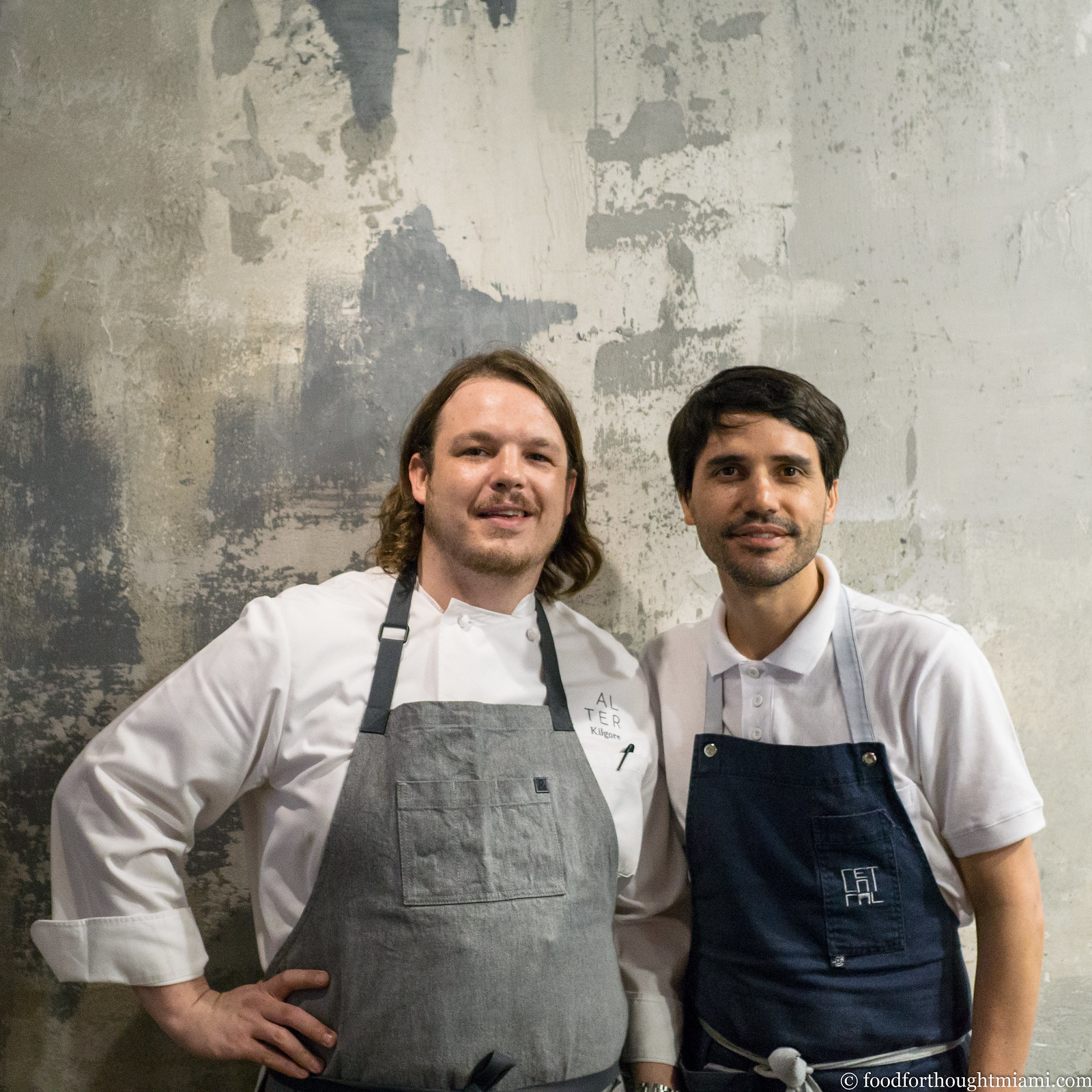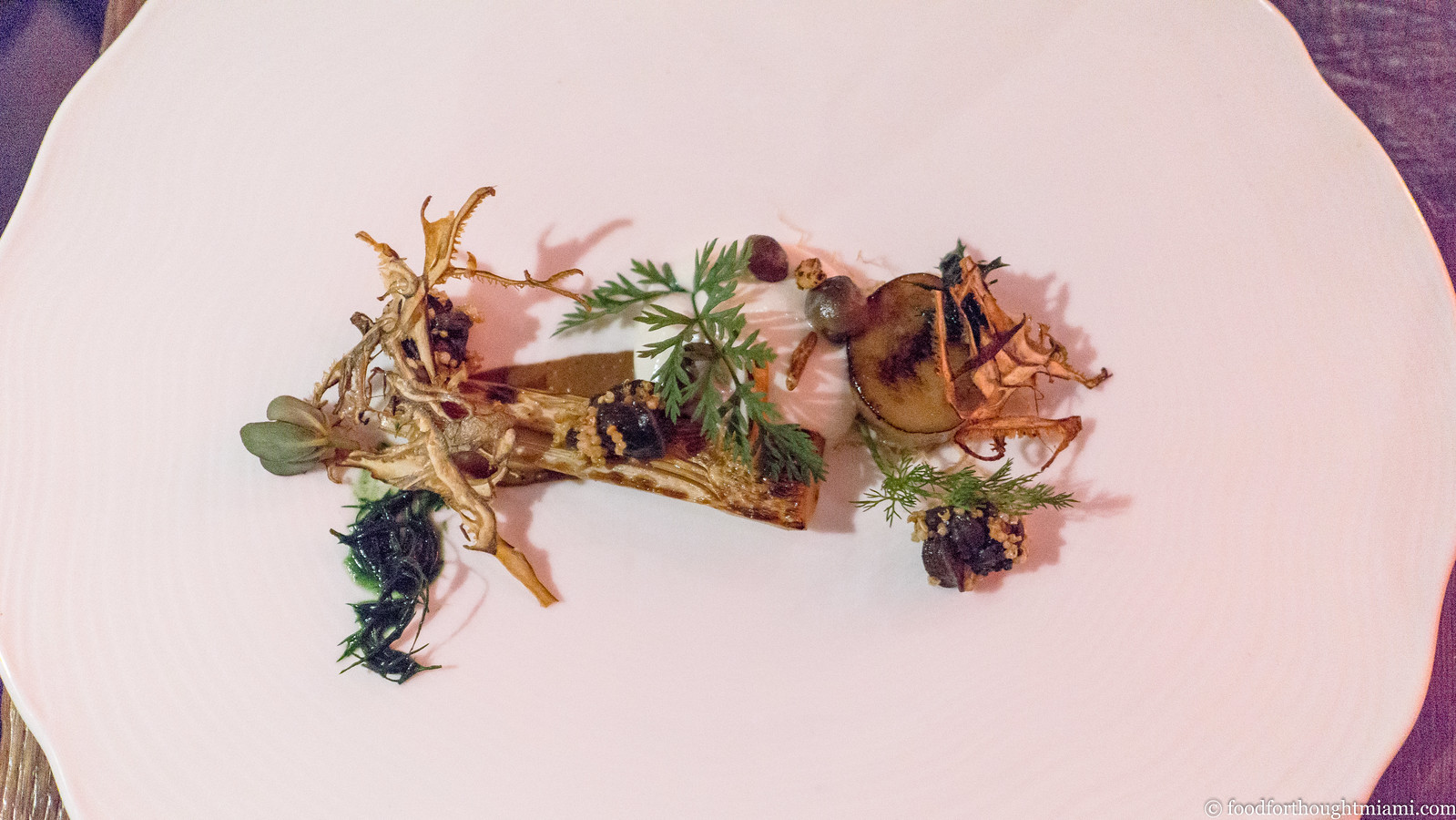Don't make me pick a favorite. I just can't.
Last Tuesday was the second collaborative dinner hosted at Alter restaurant by Chef Bradley Kilgore. This time, he brought in Chef Virgilio Martinez of Central in Lima, Peru. These kinds of team-ups can be something of a crap shoot for the diner: even with talented chefs, it's unpredictable how effectively their styles will mesh, or how well someone's cooking may show on the road.
Yet this dinner was so in tune that for most of the night I couldn't tell who had cooked which dish, other than that Virgilio's sometimes had a tell: if I had to google an ingredient, it was one of his.[1] But regardless of the creator, everything - everything! - at this meal was exceptional. If I had to narrow it down to two:
(You can see all the pictures in this Central @ Alter flickr set.)
"Valley Between Andes" – I later figured out that Martinez's menu at Central features dishes inspired by the products of different elevations of the Peruvian topography. This one included avocado, tree tomato (a/k/a tamarillo), and kiwicha (amaranth seeds). The avocado was so creamy and rich that it almost ate like tender braised beef, napped with a tangy sauce and speckled with the nutty, quinoa-like kiwicha, with shards of translucent, herb-dotted crackers for some textural contrast.
"Fallen Tree" – Brad started with a caramelized tranche of heart of palm as the base of the dish, with the other components evoking a tropical forest floor: snails, dehydrated mushrooms, a tangle of green (seaweed?) moss, a pouffe of spring garlic mousse with pickled honshimeji mushroom "spores" poking up out of it.
But these are just examples – every course of this menu impressed. It's unusual to have so many dishes that simultaneously achieve the delicious, the beautiful, and the unexpected all at once.
[1] I.e., kiwicha (amaranth seed, a pseudocereal like quinoa), tree tomato (which I'm more familiar with as "tamarillo"), airampo (a magenta hued prickly pear fruit), chaco clay (an edible clay which apparently has been consumed since pre-Colombian times).




No comments:
Post a Comment